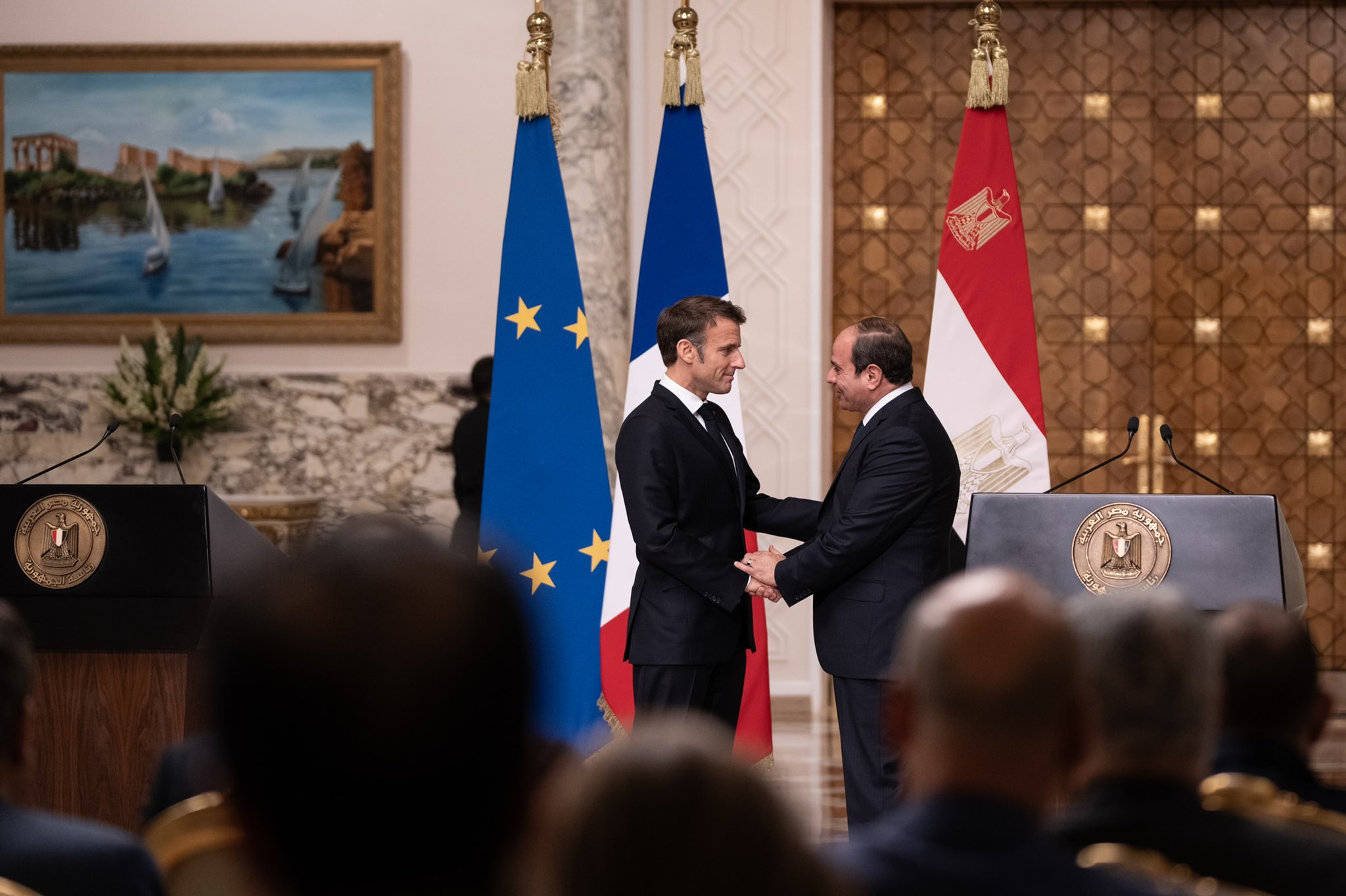The international community remains skeptical as Macron’s attempt to form an anti-Hamas coalition fizzles, raising questions about the viability and motivation of the proposal.
French President Emmanuel Macron’s recent two-day tour across the Middle East was steeped in irony and fruitlessness as he endeavoured to establish an international coalition against Hamas.
Despite visiting Israel, the West Bank, Jordan, and Egypt, he found no takers for his proposition. Leaders of the aforementioned countries opted for diplomatic reticence, steering clear of public comments on the coalition plan.
Emmanuel Macron asserted that the first response to the Israel-Hamas war should be “the fight against terrorism.”
During his discussions with Egyptian President Abdel Fattah el-Sisi, Macron insisted that “the right response is to cooperate, to draw lessons from the international coalition against the Islamic State group.”
The French president had initially broached the coalition concept following his discussions with Israeli Prime Minister Benjamin Netanyahu.
Although the proposal does not include “sending troops on the ground,” according to the French presidency, it would potentially involve sharing intelligence and battling the financing of terrorism.
Notably, Netanyahu did not offer a specific comment on the French overture and the US administration admitted that the idea has not garnered “serious consideration.”
Their reluctance stems from an apparent lack of Arab interest, noting that Arab participation would be “essential to the success of any multi-national operation.”
What would the coalition entail regionally and globally?
“I really don’t know why he would call for something like this. It’s probably the French colonial tradition in his genes. Anyway, Macron has proven to be an Islamophobe. Islamophobes always stand on Israel’s side,” British-Palestinian academic Azzam Tamimi told Doha News.
“I think the Israelis and some of their allies in the West want to prove to the world that Hamas is equal to ISIS. This is not working, and I don’t expect it to work. Hamas is today the true representative of the Palestinians and is overwhelmingly supported by Arabs and Muslims.”
So far, Israel has killed at least 7,028 Palestinians, including at least 2,913 children since it launched its most brutal campaign on the besieged Strip to date.
Tamimi was blunt about the prospective regional consequences of such a coalition. “The call for an international coalition against Hamas is a call for expanding the war well beyond Gaza. Macron is an idiot.”
As the war continues to escalate, the US has also mobilised in the region, with many experts expecting regional tensions to only rise.
The United States is deploying a ‘Terminal High Altitude Area Defense’ (THAAD) system and additional ‘Phased Array Tracking Radar to Intercept On Target’ (Patriot) air defence missile system battalions to Qatar and other countries in the region, according to CENTCOM.
As for the possibility of Arab governments intervening, Tamimi noted, “Perhaps a few Arab governments like what Macron proposed. But the massive popular support across the region for Gaza and for Hamas will make it very difficult, if not impossible, for any Arab government to join such a coalition.”
He believes that even if the coalition can eliminate Hamas, the Palestinian struggle for liberation will rise in another form, such as is the case with the Lion’s Den resistance group in the West Bank.
“There was a time when there was no Hamas. Hamas is only one of the manifestations of the Palestinian people’s continued struggle and resistance. If Hamas is finished off, which is very unlikely, there will be other manifestations, and sooner than Macron thinks,” said Tamimi.
In Nablus, the Lions Den released a statement calling on the people of Nablus and the West Bank “to take to the streets, light up tires, and confront the IOF and Israeli settlers.”
In a clear statement of solidarity with Palestinians in the besieged enclave, the group said that “no one will be able to separate us from our people slaughtered in Gaza, and life will not return to normal in the West Bank before it returns to normal in Gaza first.”
Macron’s meetings with Arab leaders
Across the Arab world, Macron has appeared to face turned faces.
King Abdullah II of Jordan used his meeting with Macron to call on the international community to exert pressure on Israel to halt its assaults on Gaza, standing in stark contrast to Macron’s initiative.
Over in Egypt, Sisi warned his forces against “rushing into wrong decisions” during a speech to military personnel in Suez.
Before leaving the Middle East, Macron confided to French journalists that he felt both the Egyptian and Jordanian leaders were “very worried” about their region and were keen to maintain “some discretion especially regarding top security issues.”
Macron committed to continuing talks with France’s partners in the days ahead, signalling his intention to participate in a European summit commencing in Brussels.
However, the diplomatic silence surrounding his proposal raises questions not just about its viability but also its foundational premise.
With scant international backing and forthright critiques from experts like Tamimi, Macron’s anti-Hamas coalition appears not just unlikely, but also sorely out of touch with both regional sentiments and geopolitical complexities.







